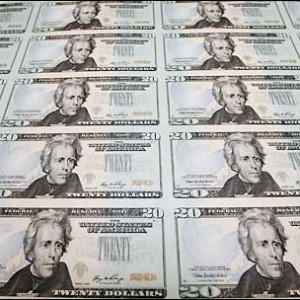Dollar weakens in Asia ahead of US data
TOKYO – The dollar weakened in Asia Monday ahead of a raft of US economic data that will provide a better idea of the future of the Federal Reserve’s stimulus program.
The greenback bought 102.35 yen in Tokyo midday trade, against 102.42 yen on Friday in New York, while the euro strengthened to $1.3606 from $1.3590.
The European single currency also rose to 139.27 yen from 139.18 yen as traders await a European Central Bank (ECB) meeting this week.
This week in Washington will see the release of data on third-quarter growth, November non-farm payrolls, manufacturing activity and home sales, while the Fed will also open up its Beige book on regional economies.
The figures will give dealers a handle on the state of the world’s largest economy, while Fed policymakers will use them when considering their plans for the bank’s $85 billion a month stimulus. Chairman Ben Bernanke has said any tapering of the scheme will be based on whether the economy is strong enough to stand on its own.
Article continues after this advertisementThe bank’s next policy meeting begins on December 17.
Article continues after this advertisement“Over coming days there will be plenty of evidence to finalise opinions about what the Fed will do at its meeting,” Credit Agricole said. “We maintain the view that the Fed will likely begin to taper in January.”
“Monetary policy will be at the heart of the market’s radar-screen throughout the coming weeks,” it added.
“Even if the first rendezvous will be with the ECB, the behaviour of the Federal Reserve Bank in the US will be the main point of scrutiny.”
Upbeat Chinese manufacturing data boost investor sentiment, while the figures out of the eurozone last week showed the jobless rate in the 17-nation bloc’s jobless rate dropped to 12.1 percent in October from a record 12.2 percent in September.
Inflation also went up slightly, easing deflationary concerns. On the downside, German retail sales slipped by 0.8 percent.
Investors will be watching the ECB meeting this week to see if it ushers in any more monetary easing after recently cutting interest rates to an all-time low of 0.25 percent.
